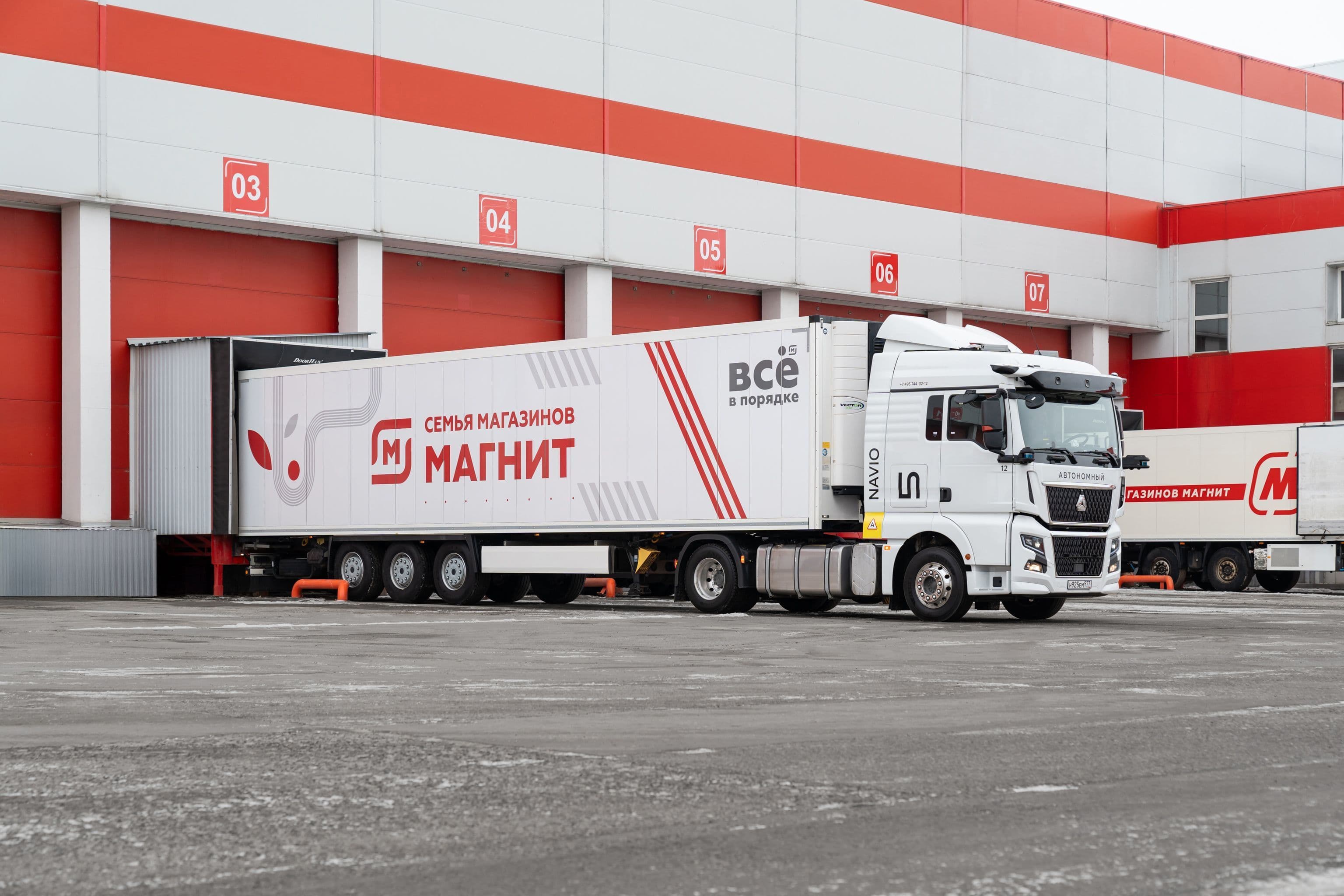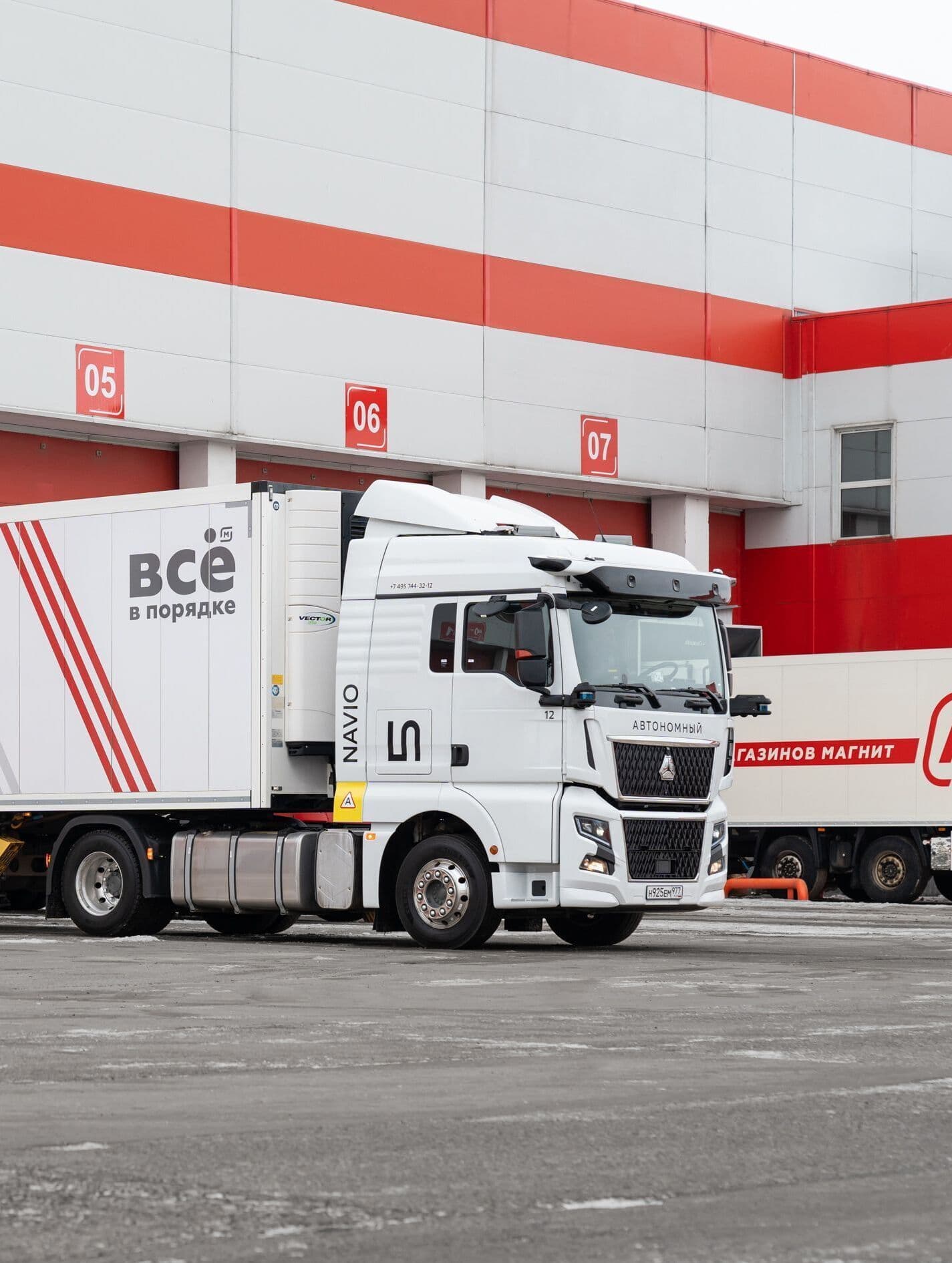Navio and Magnit have doubled their autonomous freight volumes on the M-11 "Neva" highway, now operating 28 autonomous truck runs weekly.
Navio and Magnit have doubled their autonomous freight volumes on the M-11 "Neva" highway, now operating 28 autonomous truck runs weekly.
Since 2024, Navio's autonomous tractor units have been conducting daily freight deliveries for Magnit, one of Russia's largest retailers, between Moscow and St Petersburg. The partners plan to increase weekly autonomous runs to 112 by year-end.
The longest segment of the route — the motorway section — is completed entirely in autonomous mode. Trailer transfers between conventional and autonomous trucks occur at designated points at both ends of the M-11 highway. In certain scenarios, trailers may be delivered directly to recipient warehouses.
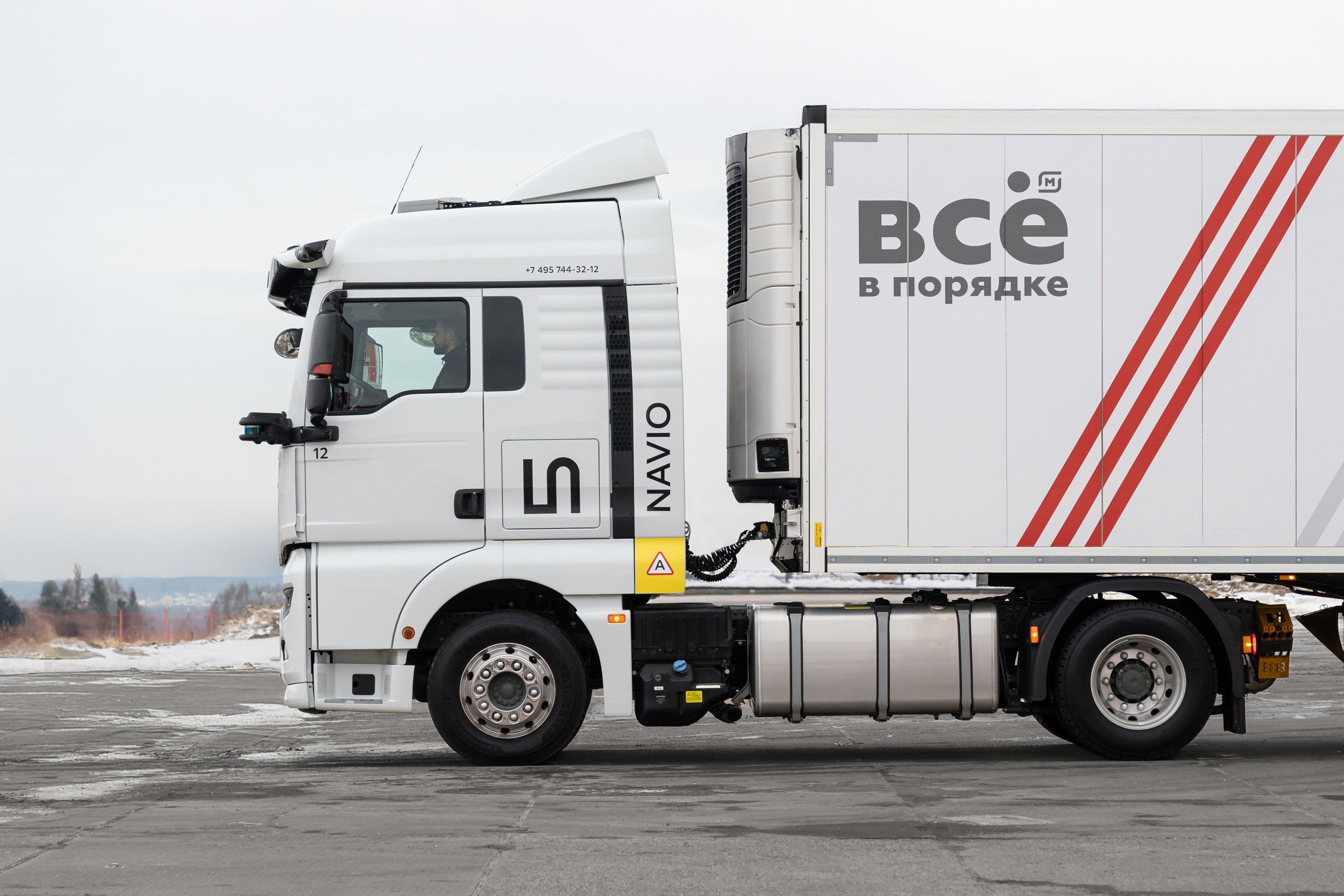
Autonomous motorway haulage enables freight senders to reallocate resources previously used for trailer delivery to Navio transfer points. This model helps optimize costs, warehouse infrastructure loads and delivery times. The economic benefits will grow as the technology expands to longer routes.
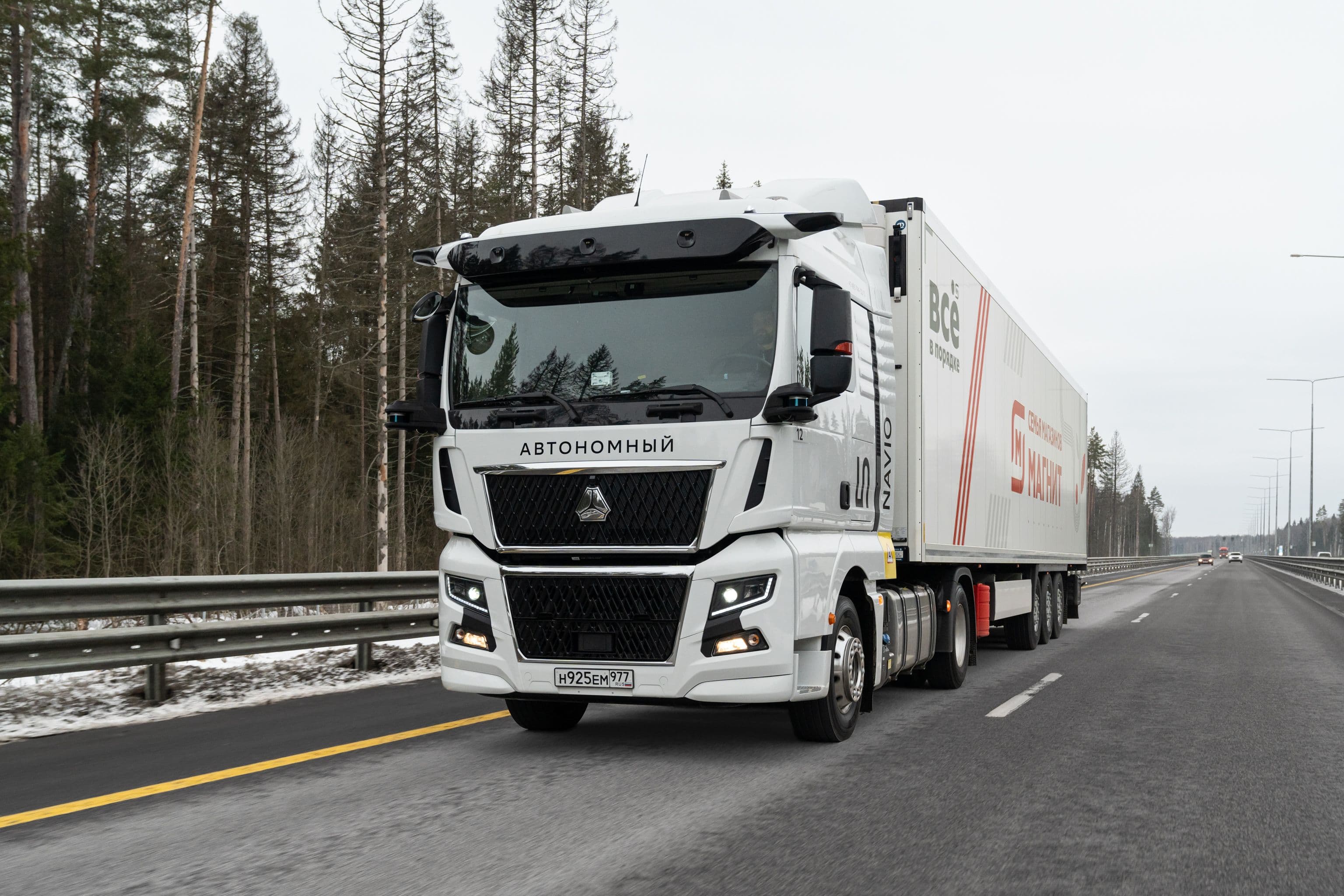
«Collaborating with major retailers like Magnit allows us to test various haulage scenarios through diverse cargo volumes and types. For groceries, speed and uninterrupted transit are crucial — key advantages of autonomous trucks versus conventional haulage.».
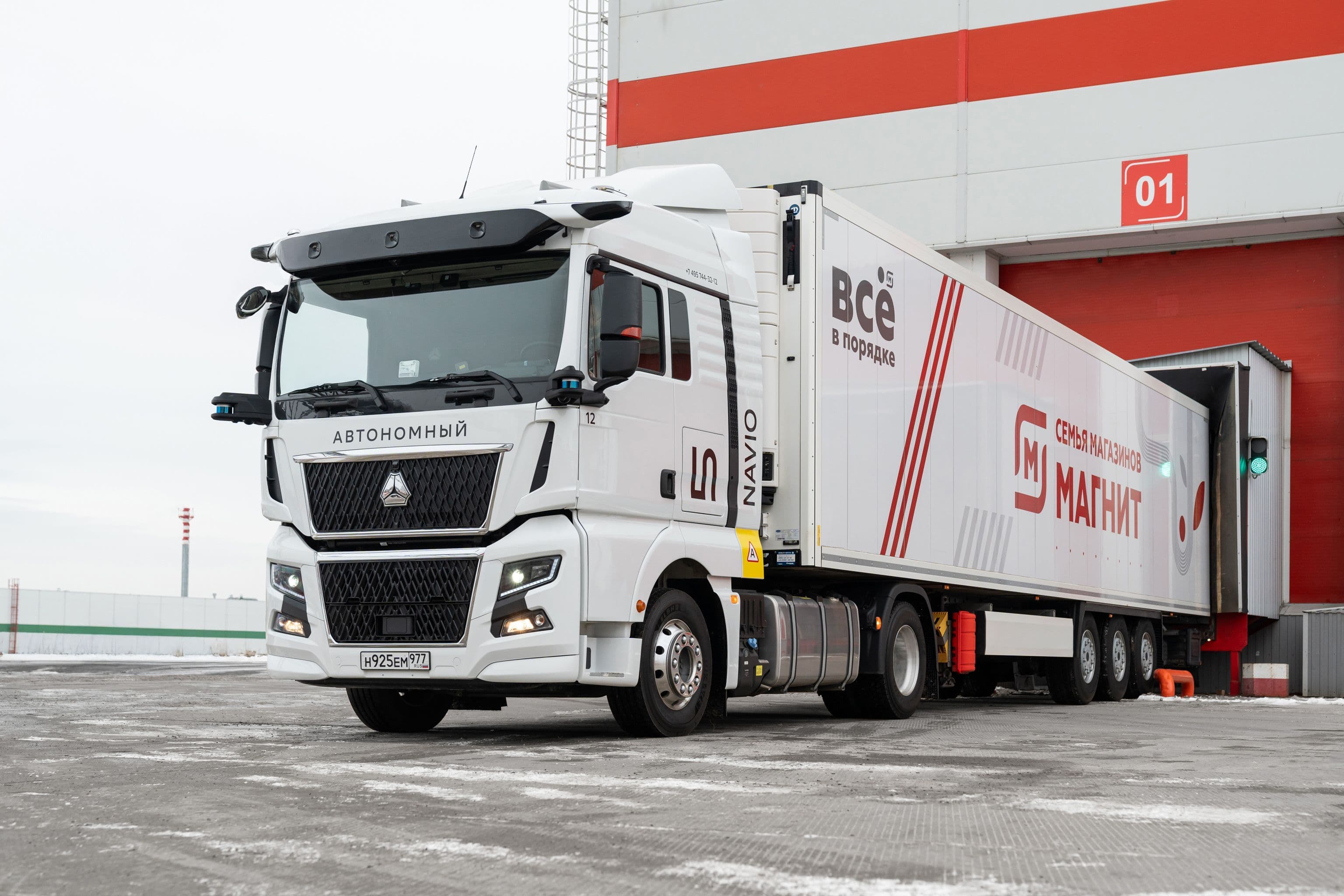
«We believe autonomous freight is a game-changing future technology. As a logistics leader, Magnit pioneered its testing. Autonomous haulage reduces fuel consumption and accident rates by eliminating human error. At scale, it will optimize costs and ultimately reduce shop prices.».

About Navio
The company develops universal autonomous driving technology and AI solutions. Since June 2023, Navio's autonomous trucks have completed daily commercial runs, delivering over 62,000 tonnes of cargo. Navio operates Russia's largest autonomous truck fleet — 43 tractor units approved for M-11 operations under the federal Unmanned Logistics Corridors project, with 2.9 million commercial kilometres logged.
Under current Russian regulations for highly automated transport systems (HATs), a safety engineer monitors all autonomous operations and can assume control if required.
